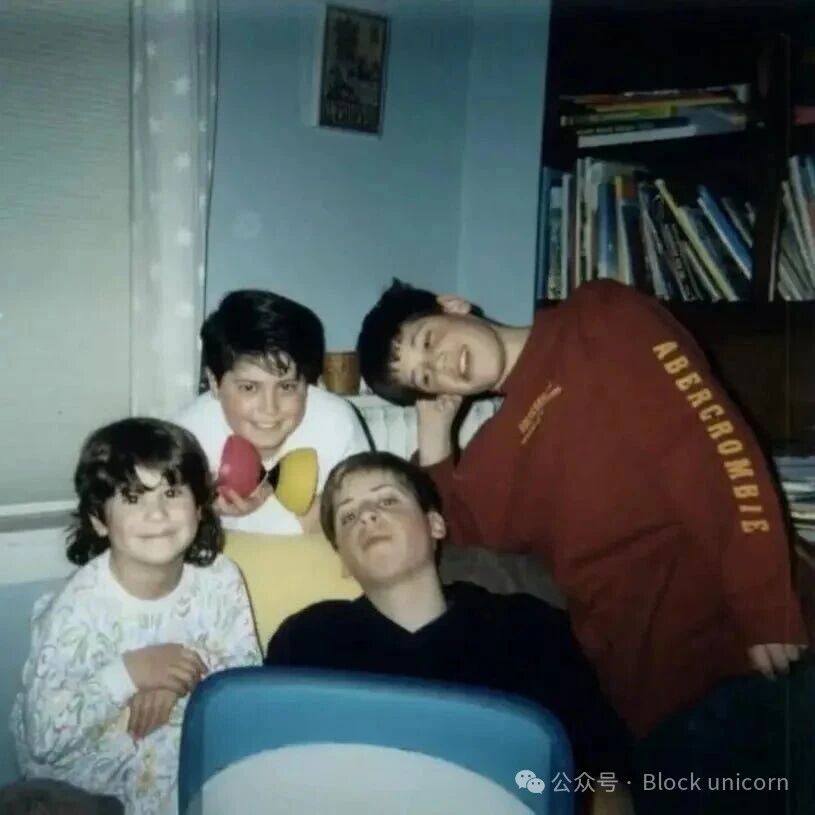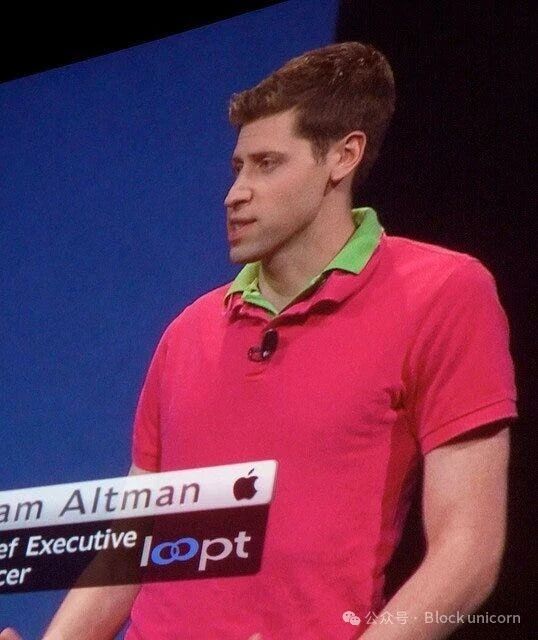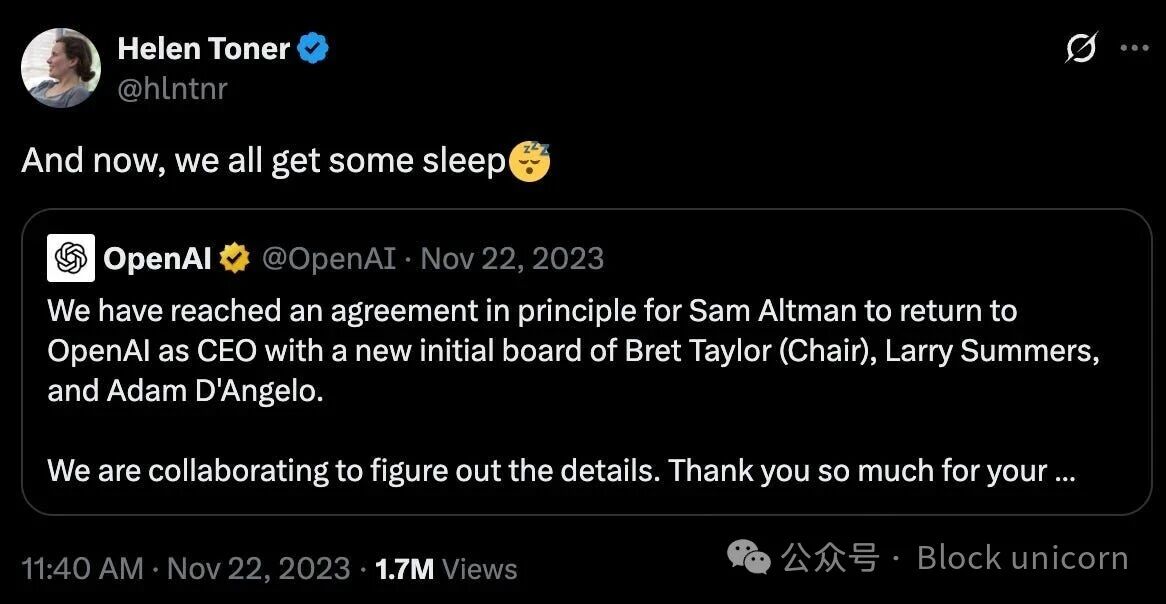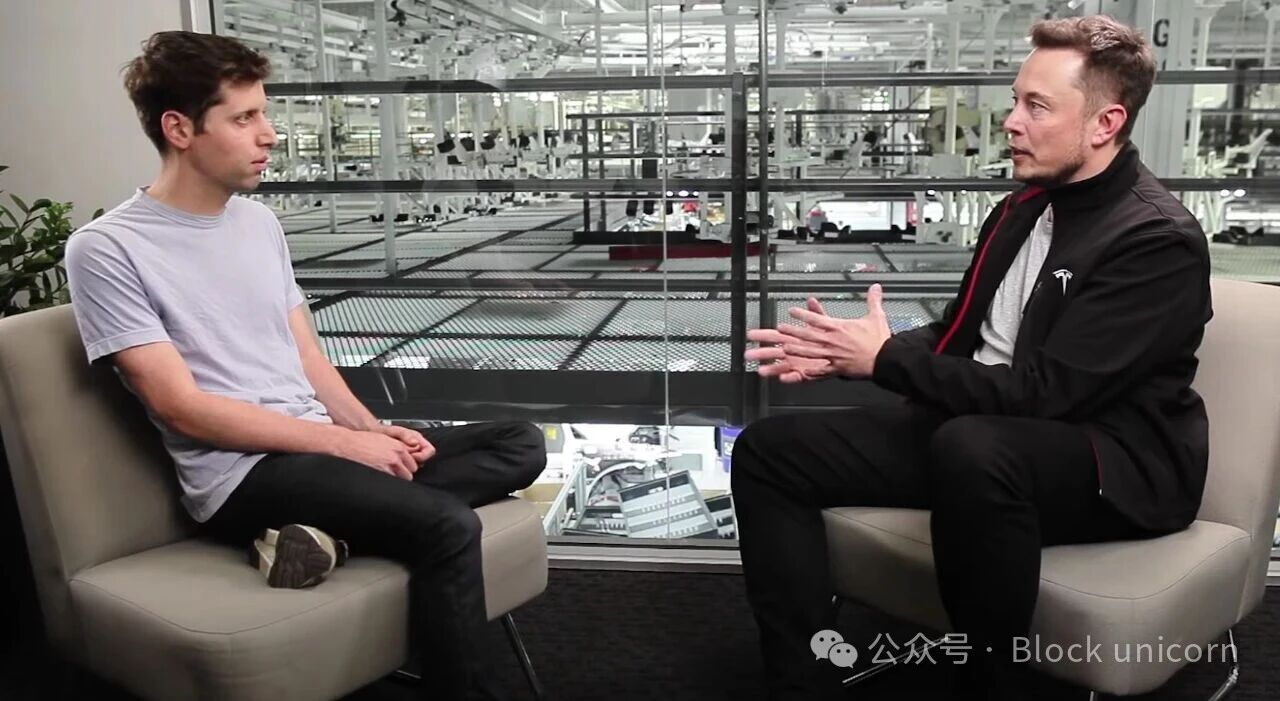Author: Thejaswini M A
Translation: Block unicorn
Preface
Sam Altman sits across from a group of Boost Mobile executives in Irvine, California. It was 2005, he was only 19 years old, wearing baggy shorts, sitting cross-legged in an office chair. The executives looked skeptical.
This young man looked like he was still in high school.
Lowell Winer, Boost's head of business development, had no idea who Altman was when he received the call that morning. The young CEO of a small startup called Loopt was eager to meet. At that time, Boost was just days away from signing a contract for location-based mobile features with another company.
But Altman had stayed up all night developing a rough version of the application to run on Boost's network. He caught the earliest flight. Within 30 minutes of entering the conference room, he convinced them to abandon the existing deal and sign with his company.
Today, at 40, he leads OpenAI, the company that developed ChatGPT, arguably the most influential AI research institution in the world. His decisions at OpenAI influence how millions interact with artificial intelligence.
However, the path from that Boost Mobile meeting to leading the AI revolution has not been smooth. Altman was fired from the company he founded, faced integrity accusations from former allies, and experienced a board coup that nearly destroyed OpenAI.
The central question of Altman's rise is whether we can trust someone so eager for power to oversee technology that could reshape civilization. To answer this question, we need to understand his journey.
A Child Who Learned to Program at Eight
Sam Altman was born on April 22, 1985, into a Jewish family in Chicago, Illinois, and soon after, the family moved to St. Louis, Missouri. His mother was a dermatologist, and his father was a real estate agent. Sam was the eldest of four siblings, and the family appeared stable, belonging to the middle class.
At eight, he received his first computer—the Apple Macintosh. He quickly learned to program and disassemble hardware, trying to understand the underlying principles of everything.
The Macintosh was more than just a hobby for him. Growing up as a gay man in the conservative Midwest of the 1990s, Altman found refuge in technology. Computers do not judge; they only respond to logic and skill.

At the prestigious private school John Burroughs in St. Louis, Altman stood out as a talented debater and student leader. He publicly came out as gay at a school assembly, which took considerable courage. When some students protested a gay rights assembly on religious grounds, Altman openly confronted them.
His English teacher, Andy Abbott, recalled that young Sam excelled at everything he tried. Abbott said, "Everyone knew this guy was better than most of us at most things." Even as a teenager, he seemed full of confidence.
Abbott hoped Altman would become a writer rather than enter the tech industry. "I remember thinking at the time—honestly, I was a bit embarrassed—I hoped he wouldn't go into tech. He was too creative."
But Altman's goal was Silicon Valley. In 2003, he entered Stanford University to study computer science, following in the footsteps of many tech entrepreneurs. At that time, Silicon Valley was entering a new boom cycle after the dot-com bubble burst.
After two years of study, Altman dropped out of Stanford. He had an idea.
What if your phone could tell you when your friends were nearby? In 2005, before the iPhone was released, Loopt aimed to connect users with people in their social networks using GPS coordinates. But the problem was that the technology barely existed at the time.
Altman applied to be part of the first batch of Y Combinator projects in Cambridge, Massachusetts. Y Combinator's leaders, Paul Graham and Jessica Livingston, were immediately impressed by Altman's mature demeanor. Graham later wrote that within three minutes of meeting him, he thought, "Ah, this must be what a 19-year-old Bill Gates looks like."
In the following three months, Altman and seven other young founders worked together in Graham's home, trying to build a company that could at least allow the founders to survive on instant noodles. This early batch of Y Combinator eventually birthed well-known companies like Reddit and Twitch, but Altman stood out from day one.
In 2007, Altman appeared on stage at the Apple Developers Conference with Steve Jobs, showcasing Loopt running on the newly launched iPhone. He wore two layered polo shirts, one bright pink and the other with a fluorescent green collar peeking out. This fashion choice was controversial and later became a meme topic in the tech community.

During this time, Graham praised Altman multiple times on his influential blog, describing him as having "such strong willpower that he can get anything he wants."
In 2009, when Graham invested in Stripe, he invited Altman to join. Altman wrote a $15,000 check to purchase 2% of the company.
However, Loopt itself was gradually declining. Despite raising over $30 million in venture capital, the app never found product-market fit. In 2012, Altman sold the company to Green Dot Corporation for $43.4 million, a price just slightly above the investors' input. By Silicon Valley standards, this was considered a failure.
However, Altman "failed upward." In 2014, when Graham wanted to step down from Y Combinator, he only considered one candidate to replace him.
The 29-year-old Altman became the president of Y Combinator. His strategy was aggressive expansion. YC significantly increased the number of accepted startups and raised $700 million to invest in alumni companies. He also launched a universal basic income experiment in Oakland, distributing unconditional payments regularly.
Venture capital giant Marc Andreessen stated that under Altman's leadership, "YC's ambitions were multiplied tenfold." By the time Altman stepped down, YC's portfolio had a total valuation exceeding $100 billion.
The Gamble of OpenAI
At the end of 2015, still managing Y Combinator, Altman gathered a group of Silicon Valley's most successful individuals to co-found OpenAI. Their goal was to create artificial intelligence that benefits humanity.
Supporters, including Elon Musk, Peter Thiel, Reid Hoffman, and Graham, pledged $1 billion to fund this nonprofit research lab.
The problem was talent. Google controlled about 75% of the world's top AI researchers. So, Altman and Musk organized a private dinner, inviting the best AI experts they could recruit. They listed the ten researchers they most wanted to hire and successfully recruited nine of them.
In the following years, OpenAI operated quietly as a research institution. But Altman realized it needed to transform. In 2019, he resigned from Y Combinator to become OpenAI's full-time CEO. The organization was restructured to create a "capped-profit" subsidiary that could attract investment while theoretically maintaining its nonprofit mission.
This structural change later sparked controversy, with critics arguing it betrayed OpenAI's founding principles. But for Altman, it was a pragmatic necessity. Advanced AI research requires enormous computational resources, which necessitates substantial funding.
The breakthrough came in 2020 with the release of GPT-3, a language model capable of generating human-like text, translating languages, and summarizing complex documents. This was followed by DALL-E, which could generate images based on text descriptions. These tools left a significant impression on AI researchers but largely remained at the academic level.
The emergence of ChatGPT changed everything.
At the end of 2022, OpenAI released ChatGPT to the public. The response was unprecedented in Silicon Valley. The chatbot reached 100 million users in less than two months, becoming the fastest-growing consumer application in history, faster than Facebook, Google, Instagram, and TikTok.
This success even shocked Altman himself. According to Greg Brockman, most engineers, including himself, opposed developing a simple chatbot, believing it wasn't worth the time. Altman overruled their opinions. His intuition proved correct.
ChatGPT demonstrated that AI had moved from research labs to practical applications accessible to anyone. This success thrust Altman into the global spotlight. He testified before the U.S. Congress on AI regulation and became one of Time magazine's most influential people in 2023.
But with increased exposure came scrutiny. In November 2023, this scrutiny evolved into a crisis.
Five Days in November
On Friday, November 17, 2023, the OpenAI board suddenly fired Altman from his position as CEO. The board's statement claimed that Altman "was not always candid in his communications with the board, hindering the board's ability to fulfill its responsibilities."
Within hours, hundreds of OpenAI employees signed an open letter threatening to resign and follow Altman to Microsoft, which offered him a chance to lead a new AI research department.
This crisis exposed deep divisions within OpenAI regarding its mission and direction. Board members, including co-founder Ilya Sutskever, scholar Helen Toner, and Tasha McCauley, believed the company had strayed too far from its nonprofit mission. At a recent developer conference, Altman announced several commercial products, which seemed to be the tipping point.
Toner even published a paper criticizing OpenAI's safety measures and praising its competitor Anthropic. Reports indicated she had suggested that shutting down OpenAI might be the best way to achieve its mission of protecting society.
In the following five days, the tech world witnessed a dramatic boardroom saga in real-time. Microsoft CEO Satya Nadella mediated behind the scenes. Major investors pushed for Altman's return. The board briefly appointed Twitch CEO Emmett Shear as interim CEO but then reversed that decision.
On November 22, Altman returned to the CEO position. The board that had fired him also resigned. A new board composed of experienced tech executives took over, including former Salesforce CEO Bret Taylor and former Treasury Secretary Larry Summers.

Then came the war with Elon Musk.
Perhaps the most complex relationship in Altman's career is with Elon Musk. The two co-founded OpenAI with a shared vision for the safe development of AI. However, as OpenAI evolved from a purely nonprofit organization to a hybrid structure, their partnership gradually deteriorated.

Musk resigned from the OpenAI board in 2018, citing conflicts of interest with Tesla's own AI work. However, his criticism of OpenAI's direction intensified, claiming the organization had betrayed its founding principles.
In 2024, Musk filed two separate lawsuits against Altman and OpenAI, accusing them of fraud, breach of contract, and prioritizing commercial interests over safety. He began publicly calling Altman "Scam Altman" on X (formerly Twitter) and launched xAI, a direct competitor to OpenAI.
The legal disputes continue. Musk advocates for increased transparency and open-source development, while Altman argues that commercial viability is crucial for funding the massive investments needed for advanced AI research.
The Controversial Identity Project
While leading OpenAI, Altman co-founded another ambitious project in 2019: Worldcoin, later renamed World Network. The project aims to create a global digital identity system by scanning people's irises.
This concept addresses what Altman sees as a key issue: how to prove a person is human in a highly developed AI era. The solution involves a dedicated device called "Orbs" that scans irises to create unique digital identities. Each verified individual receives cryptocurrency tokens.
As of 2025, World Network has achieved remarkable scale, with over 17 million verified users in 160 countries. However, the project has also sparked intense controversy. Privacy advocates are concerned about the collection of biometric data. Regulators in the EU, Kenya, and other regions have investigated or temporarily banned its operations.
Critics argue that the project has dystopian implications, especially in developing countries, where users may not fully understand the implications and exchange biometric data for small amounts of money. Supporters counter that World Network generates cryptographic hashes rather than storing actual biometric data, and as AI advances, verifying human identity will become increasingly important.
The project has also achieved significant financial success. In 2025, following financial announcements and new partnerships, the value of the WLD token surged. However, regulatory challenges remain substantial.
The Gentle Singularity
Despite the controversies, Altman remains focused on OpenAI's mission and his vision for the future of AI. In September 2025, he published an article titled "The Gentle Singularity," stating that we have crossed the "event horizon" of AI development.
His predictions include:
2025: The emergence of AI agents capable of true cognitive work
2026: AI systems begin to generate new scientific insights
2027: Robots start performing complex physical tasks
2030s: Intelligence and energy become abundant resources
Altman envisions a future where AI enhances individual productivity, leading to breakthroughs across various fields, from physics to space colonization. He bets that advanced AI will solve problems we currently deem unsolvable.
To realize this vision, OpenAI plans to make infrastructure investments totaling $850 billion, including partnerships with Oracle and Nvidia. These investments will make OpenAI's construction one of the largest capital expenditures in tech history.
Despite his prominent role as CEO of OpenAI, Altman does not hold any equity in the company. He estimates that his $1.8 billion fortune comes entirely from his investment portfolio, which includes stakes in over 400 companies.
Some of his notable investments include:
Reddit: Approximately $700 million in shares from a $50 million investment
Stripe: Initially invested $15,000, now holds 2% of the company worth hundreds of millions
Helion Energy: Major investor in the nuclear fusion startup, valued at $5.4 billion
Airbnb: Early investment in the home-sharing platform
Altman's investment philosophy emphasizes "hard tech" companies focused on solving significant technological challenges with substantial impact potential. This approach has made him one of Silicon Valley's most prolific individual investors. Altman is also the chairman of Helion Energy and has invested in next-generation nuclear systems company Oklo Inc. His interests span from AI to energy to longevity research, reflecting his belief that technology can address humanity's greatest challenges.
Altman's decisions at OpenAI not only affect shareholders or employees but also influence the development of artificial intelligence and how it integrates into human civilization.
In 1945, there is a famous photo of J. Robert Oppenheimer standing in the New Mexico desert watching the first atomic bomb test. He later recalled that at that moment, he thought of a line from Hindu scripture: "Now I am become Death, the destroyer of worlds."
Sam Altman does not quote ancient scriptures when discussing AI. He is more likely to mention efficiency metrics or capital deployment strategies. But the similarity is hard to ignore. He is building something that could reshape civilization, working in baggy shorts with an iPad. The difference is that Oppenheimer had the secrecy of the Manhattan Project and government oversight. Altman has venture capital, a $76,000 salary, and a board that once fired him.
History will remember one of them as the father of the atomic age. As for which father Altman will ultimately be, it remains to be seen.
This is the story of Altman; see you in our next article.
免责声明:本文章仅代表作者个人观点,不代表本平台的立场和观点。本文章仅供信息分享,不构成对任何人的任何投资建议。用户与作者之间的任何争议,与本平台无关。如网页中刊载的文章或图片涉及侵权,请提供相关的权利证明和身份证明发送邮件到support@aicoin.com,本平台相关工作人员将会进行核查。




